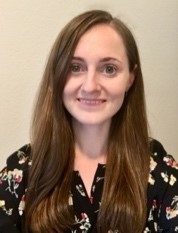American Psychological Association Division 50
In what ways can we ensure that we continue to provide excellent addictions training during the COVID-19 pandemic?

Jennifer Read, PhD
University at Buffalo
With conferences being virtual, we must find creative ways to welcome, encourage, and engage trainees. This might include small online meet & greets, one to one virtual mentoring, virtual brown bag lunches – anything to help trainees build professional networks in this time when personal connections are hard to come by.

Renee Cloutier, PhD
Pennsylvania State University
Our country needs more people with addictions training ASAP. Recruiting, retaining, and training the necessary talent requires institutional investment in trainees as whole people trying to survive a pandemic while providing critical mental health services and developing addiction science to improve those intervention efforts. Living wages, health insurance, job security.

Nichole M. Sell, PhD
University at Buffalo
With everything going virtual, training workshops and networking opportunities are more accessible now than ever before—and many online events are free or reduced cost. Mentors should offer mentees guidance on selecting the best events for their unique training needs, bearing in mind that time and energy are finite resources.

Lindsay Meredith, MA
University of California, Los Angeles
I would encourage trainees to attend low-cost virtual addictions conferences, collaborate with peers on existing data projects, and serve as research mentors to undergraduates currently unable to hold traditional research assistant roles. Being a mentor cultivates meaningful connections and requires you to distill complex scientific concepts into an accessible narrative.
In 50 words or less, please respond to the following prompt—How can and should Division 50 continue to promote the representation of underrepresented groups and to amplify underrepresented voices in addiction psychology? Please send responses to dana.litt@unthsc.edu by June 1, 2021.

Resources are available for those struggling with addiction and numerous effective treatments exist. Whether you are looking for help for yourself or a loved one, we encourage you to seek out help.